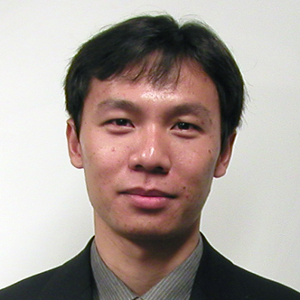Title
Samuel D. Conte Professor of Computer Science
Education
PhD, Computer Science, 2006
University of Arizona
MS, Computer Science, 2000
University of Sci. & Tech. of China
BS, Computer Science, 1998
University of Sci. & Tech. of China
Research Areas
program profiling. In particular, he has designed efficient and effective dynamic slicing techniques
which have a lot of applications in debugging runtime errors, intrusion detection, and preventing
software piracy. He has designed architectural support for protecting sensitive data in symmetric
shared memory processors. He has also conducted research on program tracing and profiling, which
includes novel representations and creative compression techniques. Zhang is interested in program
analysis, both dynamic and static, and their applications in software engineering and security
related issues.
Notable Awards
CSAW 2021 Best Applied Security Paper Award TOP-10 Finalists.
2019 ACM SIGPLAN Distinguished Paper Award on OOPLSA.
CSAW 2019 Best Applied Security Paper Award TOP-10 Finalists.
2017 USENIX Security Distinguished Paper Award.
2016 NDSS Distinguished Paper Award.
CSAW 2015 Best Applied Security Paper Award TOP-10 Finalists.
2015 College of Science Graduate Student Mentoring Award, Purdue University
2015 CCS Best Paper Award.
University Scholar, 2014-present, Purdue University
2014 USENIX Security Best Student Paper Award.
2013 ACM SIGSOFT Distinguished Paper Award and Best Paper Award in ASE.
2009 NSF Career Award.
2006 ACM SIGPLAN Dissertation Award.
2003 ICSE Distinguished Paper Award.
Notable Affiliations
Zhang is a member of ACM and IEEE.
Publications
X. Zhang, N. Gupta, and R. Gupta, "Pruning Dynamic Slices With Confidence", ACM SIGPLAN
Conference on Programming Language Design and Implementation, 2006.
X. Zhang and R. Gupta, "Whole Execution Traces and their Applications", ACM Transactions on
Architecture and Code Optimization, 2005.
X. Zhang and R. Gupta, "Matching Execution Histories of Program Versions", Conference and 13th
ACM SIGSOFT Symposium on the Foundations of Software Engineering, 2005.
Biography
Professor Zhang's research is on automatic debugging, software reliability,computer security, and program profiling. In particular, he has designed efficient and effective dynamic slicing techniques which have a lot of applications in debugging runtime errors, intrusion detection, and preventing software piracy. He has designed architectural support for protecting sensitive data in symmetric shared memory processors. He has also conducted research on program tracing and profiling, which includes novel representations and creative compression techniques. Zhang is interested in program analysis, both dynamic and static, and their applications in software engineering and security related issues.
Zhang is a member of ACM and IEEE.
